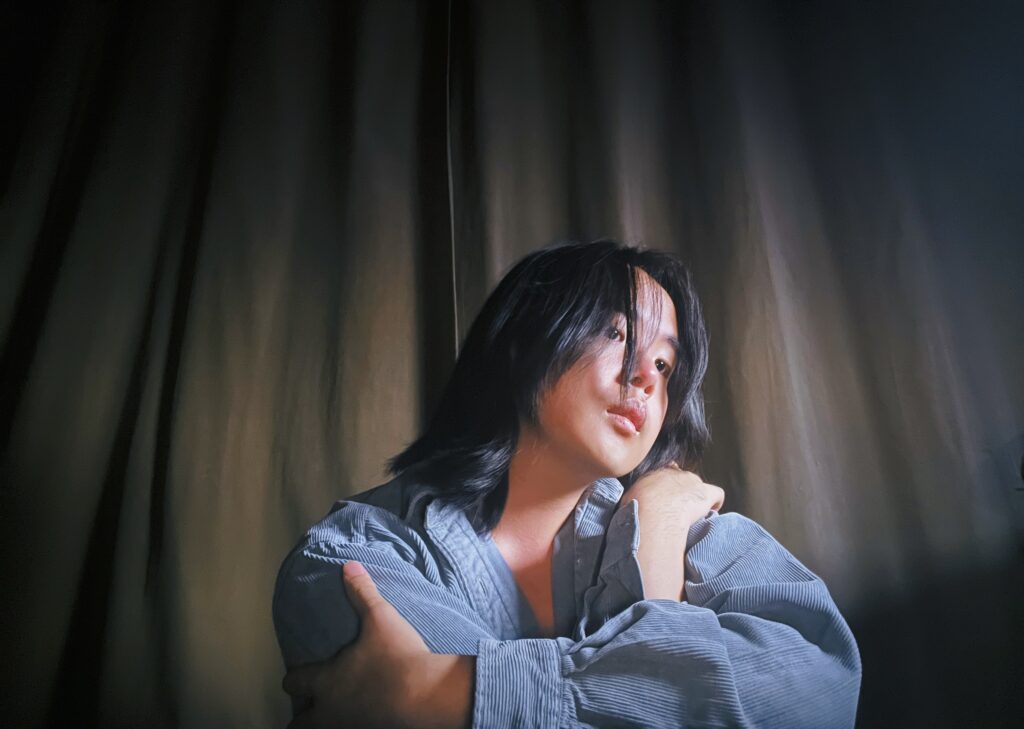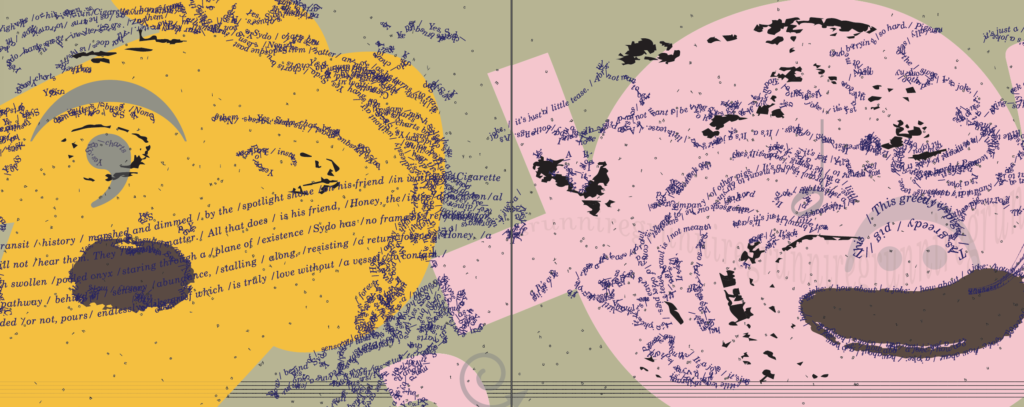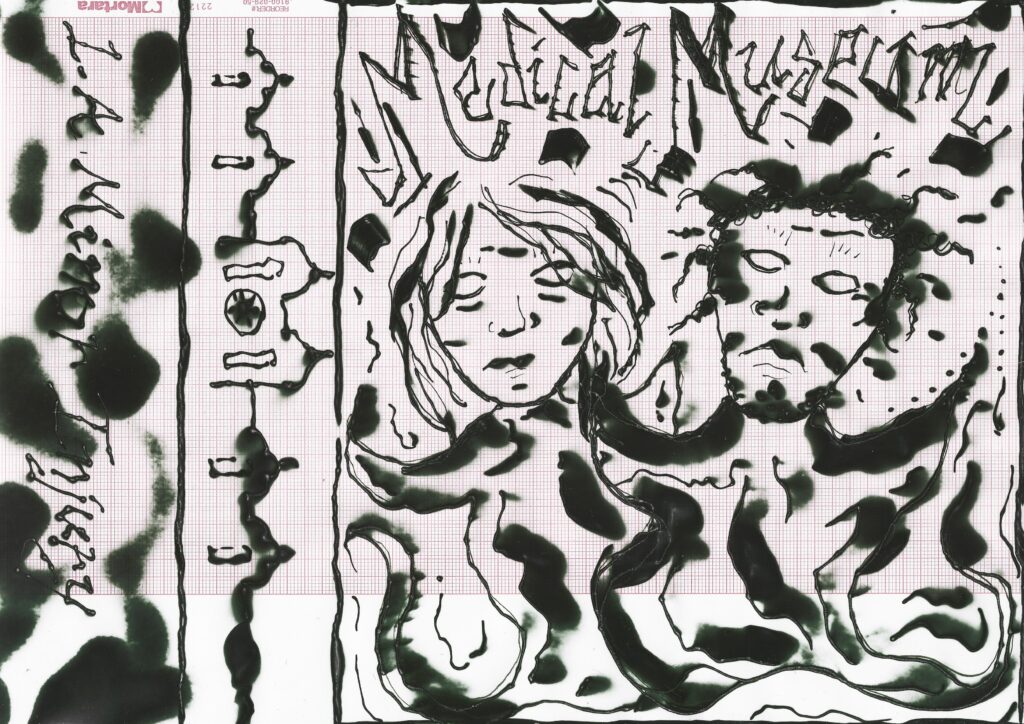
Los Angeles-based composer Lucy Liyou synthesizes field recordings, text-to-speech readings, poetry, and elements from Korean folk opera into sonic narratives that explore the implications of Orientalism and Westernization. Combining disparate sonic elements into critically cohesive pieces, the musical world of Lucy Liyou alternates between beautiful serenity and unsettling entropy. Arresting ballads and contemporary classical pieces fragment into decaying shards, voices get warped beyond recognition, and shimmering light makes way for bit-crushed noise. Her latest record, Dog Dreams (개꿈), is a rumination on the double-sidedness of trauma and love, on how one does not undercut the other, but rather how both are interlocked in an affective dialectic. Liyou’s work has earned acclaim from Pitchfork, The Guardian, Bandcamp Daily, The Quietus, Them, Tone Glow, Wire Magazine, Mixmag Asia, The FADER, and NPR Music, among others, and received notable airplay on NTS Radio, KEXP, NPR, and Sonos Radio’s Radio Hour with Thom Yorke. Liyou has shared the stage with artists like L’Rain, claire rousay, Salamanda, Drew McDowall (Coil), Theodore Cale Shafer, HTRK, Liz Harris (Grouper) and performed on stages such as Cafe OTO, Portland Institute for Contemporary Art, and Rewire Festival.

At the end, / another /battle, /another /battle, /another /
battle. /There is no /aftermath,/ no after/math, no af/termath. Only /
more, more, more. /
Yes, Sydo explores how poetry and sound can meld into an alternative form using Homer’s epic Odyssey as its anchor. Yes, Sydo looks to reframe the oldest Western epic, challenge its legacy and ultimately target the pain of navigating today’s tragedies and ideologies. Yes, Sydo stems from over six years of sustaining a relationship through tragedy and comedy; mutual and different expressions of grief and pain. Yes, Sydo investigates the dialectical dilemma of giving and receiving odynia, or pain. Yes, Sydo asks how pain can serve other purposes. How and what may pain, receiving and delivering, communicate when mobilised in a radically different system? Yes, Sydo prods the paradox of current times, questioning how such an aftermath can exist when the unremitting characteristics of global capitalism rage on to the tune of business as usual.
Do / not let the /olive branch fall /
from his hand. /It’s not com/plicated, /complica/ted, compli/cated. /
Speaking of business, Yes, Sydo received the support of the Canada Council for the Arts.
Josh Rose has been performing and releasing music for nearly 20 years, incorporating an ever expanding array of tools, tactics, and techniques to his practice, guided by an experimental approach that explores themes of error, malfunction, improvisation and indeterminacy. His work seeks to produce and explore somatic possibilities in synthetic sound textures and conceptually rooted performance. Since 2015 he has produced and performed electronic dance music under the project name Derivatives.
Danielle LaFrance wrote the poetry-research-theory books JUST LIKE I LIKE IT (Talonbooks, 2019), Friendly + Fire (Talonbooks, 2016), species branding (Capilano University Editions, 2010), and #postdildo (Talonbooks, 2022). Every book, every poem is a problematic. And now they sing it out. Other poetry and critical writing have appeared in such magazines and journals as ASAP/Journal, The Capilano Review, LESTE, Tripwire, and Organism for Poetic Research.
LaFrance and Rose reside on occupied and stolen lands of the xʷməθkʷəy̓əm, Sḵwx̱wú7mesh, and səlilwətaɬ Nations. They stand in solidarity against settler-colonialism and its violences, from the policy to the bomb.

Medical Museum is Hang and Lulika, long term collaborators and interdependent carers based in Leeds, UK. Both grew up on a diet of rave, jungle, metal, hip hop and breaks, rpg games and a wayward era of internet access. In this new metamorphosis, influenced by dungeon and fantasy synth, Medical Museum conjures med-synth: Alchemical sounds for anyone who has ever been made to feel like an artefact, an experiment or a casualty of the medical industrial complex.
Hang Linton is a self-taught artist and musician from South East London whose work is a rebellion against clean aesthetics. Their solo project EP Demonstrations 24 will be released on November 29th on Come Play With Me Records / EMI North.
Laura Lulika is an artist and cultural worker whose experiences as a queer disabled neurodivergent parent informs how and what they make. This year they showed audiovisual installation works at Transmediale Berlin and Glasgow International Festival.
With interpretation by Deaf performer Gaitrie Persaud, this video performance is curated by AO Roberts in conjunction with the release of Plants Properties Equipment. Plants Properties Equipment is a compilation LP with tracks by Chisato Minamimura (UK), Molly Joyce (USA), Johanna Hedva (GER), Andy Slater (USA), VOR (CAD), and Medical Museum (UK). Released as a soundtrack to a video game developed by Seance Collective and AO Roberts, the album features Deaf and Disabled artists whose sonic works invoke crip pleasure, kink, illegibility, and noise.
Presented with the West End Cultural Centre.
ACCESSIBILITY INFORMATION
The front entrance of the West End Cultural Centre is nearly at sidewalk level. There are no steps, however, there is a small incline at the door threshold of about two inches. In the entranceway, there is an elevator that can take people up to the lobby and a volunteer with a key available to help. The lobby is at the same level as the venue. The seating in both Ventura Hall and ACU Hall is modular and can be adjusted as necessary to accommodate patrons’ needs. The washrooms in the lobby are both wheelchair accessible. Parking at the venue is only available on the street. Patron can be dropped off and picked up at the front of the building. There are sidewalk curb cuts at the corner of Ellice Avenue and Sherbrook Street, approximately ten meters from the entrance to the building.
Masking is recommended but not required, and masks will be available at the door.